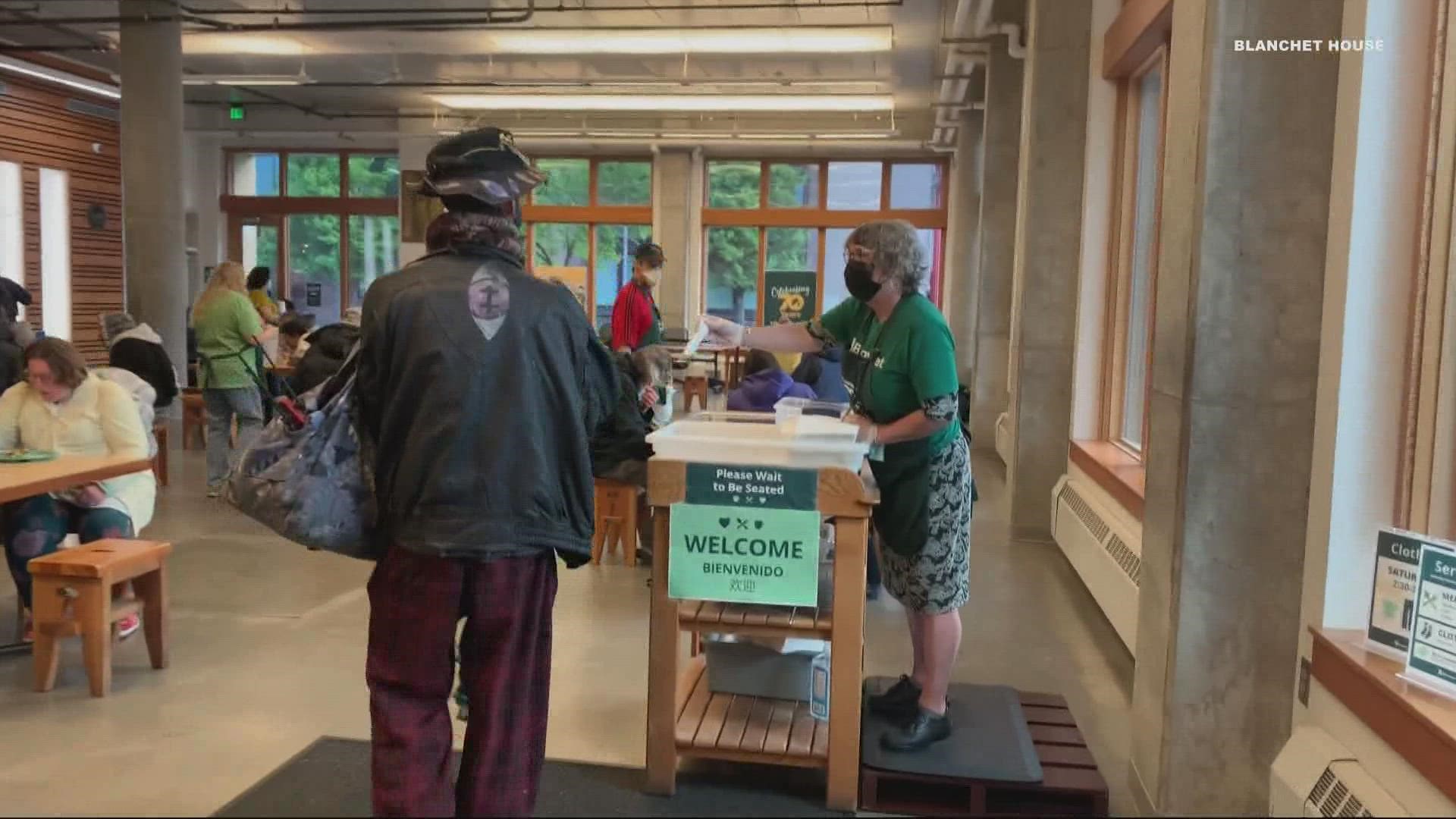PORTLAND, Ore. — Blanchet House, a nonprofit in the Old Town neighborhood that provides services to unhoused Portlanders, has resumed indoor dining services again after moving to to-go meals only during the pandemic.
It is also on the verge of launching a new program with a potential to make a big difference in the area.
Blanchet House serves three meals a day, six days a week to anyone who is hungry, no questions asked. That means they serve many who live in tents across the street in Old Town, and anyone else who shows up. It typically totals about 1,000 meals a day. Over the course of the pandemic, those meals were served outside.
"They have been living and existing in truly horrible, horrid, terrifying and inhumane conditions since the shutdown in March of 2020," said Scott Kerman, executive director of Blanchet House. "As good as our to-go service has been — and we're quite proud of it — it's still eating on a street, eating on the sidewalk, sitting in a gutter, having a meal."
Kerman has seen the raw side of Old Town.
"The mental health crisis in Old Town is extreme. I don't even think of this as a homeless problem. Right now I think of it as a mental health crisis. And it's an addiction crisis because people often will self-medicate as a way of dealing with their trauma and their PTSD and other mental illnesses that they're suffering from."
While he can't fix that, he has come up with a plan to help. Kerman has sold Multnomah County on setting aside more than $1 million to hire six peer support specialists. They'll be shared among Blanchet House, Rose Haven, William Temple House and Maybell Center for the Community, which all provide shelter or homeless services.
"That's going to create a continuity of care that just hasn't existed before," Kerman said. "These teams are gonna get to know our clients from agency to agency, because we serve a lot of the same folks down here. They'll eat a meal at Blanchet House and then they'll move to another agency in Old Town for other services, and I think it's really going to help us create relationships with the people that we're serving that's going to lead to better outcomes."
The peer support specialists will be people who are in recovery themselves, have been homeless or have lived with addiction and mental health issues.
They understand what people are going through. Blanchet House already has two specialists of its own.
"During our lunch service today a woman came in, sat down at a table and just put her head down. She was fairly nonresponsive — she wasn't passed out but she was pretty nonresponsive," Kerman explained. "We didn't know if she was just dope sick or what was going on, but we had two peer support specialists just checking in with her, making sure she was okay. We talked about whether we had to call 911; we decided we didn't have to at that time."
Eventually, the woman ate some food and moved on.
Held up by bureaucratic red tape, Kerman's plan is taking shape slowly. He came up with the idea more than a year ago, but currently there is just one of the six peer support specialists hired.
"I'm thankful that we're moving forward now, we're going to have these peer teams available to us, but I needed them six months ago! A lot can happen in a little bit of time," Kerman said. "We've had a lot of violence in Old Town. We've had two meal guests violently murdered in Old Town in the last two months. I just would say that when we have ideas that really make sense, wherever they come from, let's see what we can do to cut through some of the red tape and get these services to the people who need them."

